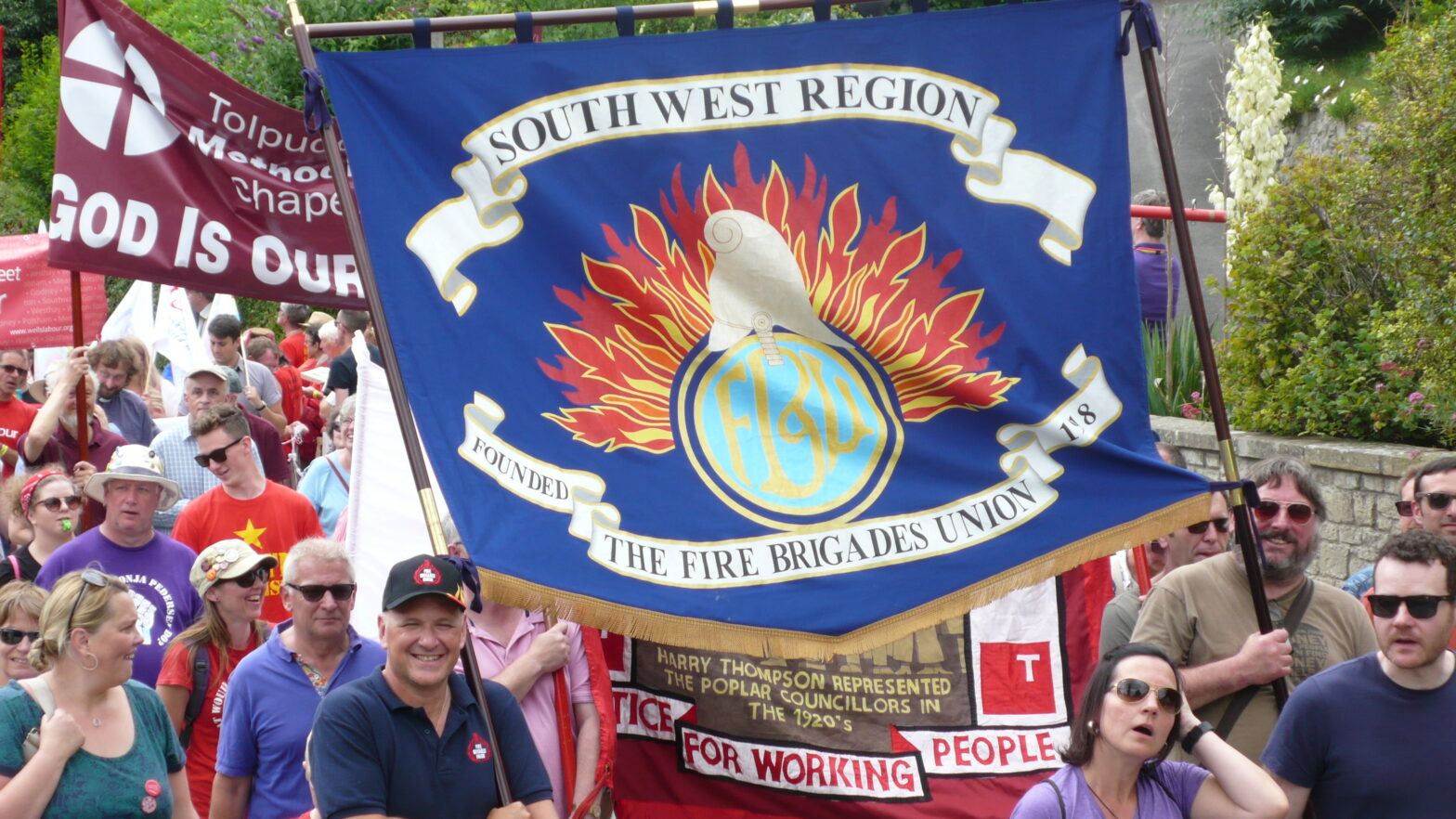SO THE FIRE and rescue service pay dispute is over. In a consultative ballot, 96% of FBU members voted to accept a revised offer of an increase of seven per cent for the current year, backdated to the original pay settlement date of 1 July 2022, with a further five per cent for the year from 1 July 2023.
The outcome brings to an end a near year-long campaign by the FBU to force the national fire service employers to make an offer acceptable to the union’s membership. It is a point worth noting that, in the end, agreement was reached through old-fashioned free collective bargaining – a mechanism that the government is quite wrongly hell-bent on abolishing in the fire and rescue service.
So what is there to say about the settlement? Well, the final deal was not by any means a bad or dishonourable one. In the wider political, economic and industrial context, it was probably about as much as the union was likely to achieve without taking sustained (and costly) strike action. Plus, there is the bonus that the deal comes with no strings.
The leadership was therefore right, in the circumstances, to recommend its acceptance to members.
On the negative side, it is undeniable that the deal again represents a real-terms pay cut for firefighters. After more than a decade of falling real wages, the latest settlement will do little to alleviate the acute financial pressures being felt by FBU members up and down the country. So, as senior FBU officials have themselves accepted, there is no cause for celebration or backslapping.
Throughout the campaign, this blog called for two things. First, we argued that the union leadership should have defined the pay claim more clearly at the outset. Second, the union’s annual conference should have been recalled to allow members, through their elected local delegates, to debate and decide upon the structure and direction of the campaign.
Taking each of these in turn, we don’t see that any advantage was gained by the refusal to define the pay claim. It may have made life easier for the leadership (by freeing them from the responsibility of having to make a difficult decision), but – as was often demonstrated by the mood at meetings of members – it unquestionably caused a degree of confusion within the union’s ranks.
It meant, for example, that there was no point of reference between members who, in the early days of the campaign, were demanding a 15 or 20 per cent increase and thought that’s what the union would be striving to achieve (and those members did exist) and those who always assumed the union’s aims were much more modest and were content with that. It meant, too, that it would not be possible, following any settlement, to measure outcome against aims (again, something that might have suited the leadership but was not conducive to real accountability or any assessment of success or failure). The refusal to define the claim also ran the risk of allowing the employers to set the agenda in negotiations.
It is true that inflation is currently a moving target but, as this blog argued, there was no reason why the leadership could not have tabled a demand in principle linked to the rate of inflation at the point at which any deal was struck. If it had done so, the end result of a seven per cent increase in the context of previous offers of two and five percent, and an inflation rate of 10 per cent, would not have looked shabby. Instead, members were never really given a clue as to what the leadership was striving to achieve, and this inevitably created a sense of randomness and uncertainty about the campaign.
In the end, the question of whether or not it was right to define the claim more clearly probably made little difference to the outcome. But it is important for future disputes that the question is at least properly examined.
The more fundamental error was the failure to recall the union’s annual conference. There was simply no excuse for the fact that the leadership refused throughout the entirety of the campaign to recall conference – the parliament of the union – so that members, through their local delegates, could participate in proper debate and decision-making over all aspects of that campaign.
Democracy is the bedrock of FBU activity – or so we are told. In previous years, the union’s annual conference has been recalled for all manner of reasons – not only on regular occasions during national disputes (such as on pay and pensions), but also, for example, to discuss an internal reorganisation, the NJC wider work trials, and even a proposal to reaffiliate to the Labour party. That not a single recall of conference occurred during the whole of this 10-month-long pay campaign was therefore indefensible.
As is always the case in national disputes, a thousand questions were raging about things such as aims, objectives, demands, tactics and strategy. The union’s conference provides the mechanism by which such questions can be addressed and policy determined. Conference also gives members the opportunity to hold the leadership to account and unite behind an agreed strategy.
For example, the question of whether or not the union should have defined the pay claim more clearly could have been debated and decided at a recall of conference, and thus the matter addressed in the early stages of the campaign.
In previous disputes (such as the 2002-03 pay strikes), the loudest calls for recalling annual conference came from some of the figures who now sit at the union’s top table. They made these calls because they understood that regular engagement with members and local officials were prerequisites to a successful dispute, as well as central to the questions of internal democracy, accountability and transparency. These individuals seem to have different ideas these days.
There was never a good reason for not recalling the union’s annual conference. The refusal to do so is consistent with the increasingly authoritarian, ‘top-down’ approach of the current leadership. This recent pay dispute was arguably the most centralised dispute in the union’s history. All the major decisions were taken by a handful of senior officials behind closed doors. With the ongoing ban on the circulation of minutes of executive council meetings, it meant that there was very little opportunity for rank-and-file members to exercise scrutiny or control over those officials.
If this state of affairs is allowed to become the norm, it will mean that the democratic structures of the union – of which annual conference stands at the apex – begin to wither on the vine. It will also mean we breed a generation of members, activists and officials who are completely unaccustomed to the tradition of recall conferences and the principle of holding the leadership to account through robust internal scrutiny and accountability.
That must not be allowed to happen.

